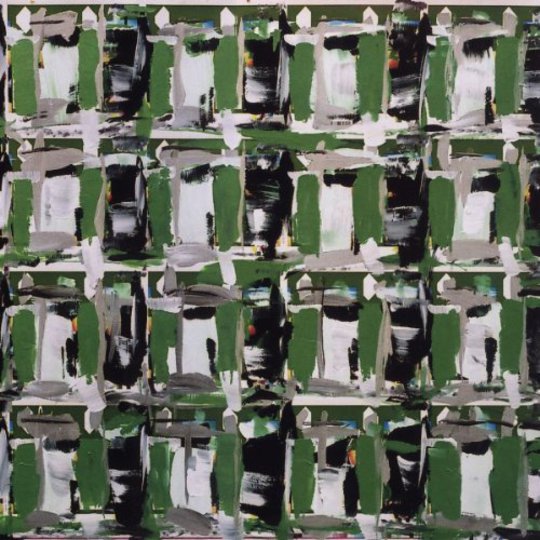Wolfgang Voigt is a co-founder of Berlin techno imprint Kompakt, most widely known as purveyors of unimpeachably hip minimal dancefloor material. He also set up the Profan label in 1993 as a home for the more wayward efforts of himself and his contemporaries, a fine early example being 1994’s Dadajack 12-inch. This was a Wolfgang Voigt production, issued under the Mike Ink alias, a name which would subsequently become synonymous with economical, relentless, experimental acid techno.
Profan was abrubtly shelved in 2000 and many felt that its particular brand of wonkiness was sorely missed. The first Freiland 12-inch signified the revival of the label in 2008; acid obsessed techno heads everywhere breathed a sigh of relief. They were in for a bit of a shock: now expanded and reissued as a full length, Freiland Klaviermusik contains some of the strangest material ever to have been dragged over a four-to-the-floor sine wave kick drum. Indeed, all sounds on the record besides said kick drums come from ‘synthetic’ piano. Voigt doesn’t use this source in a manner you might expect from, say, Matmos or Herbert, where material from other contexts is processed or carefully picked to substitute the role of typical dance music elements such as hi-hat or percussion. He simply leaves those elements out, exposing us instead to a barrage of clustered, pure tones, which ricochet off each other like marbles in a washing machine.
The effect is immediately oppressive and utterly unexpected. One can’t begin to imagine the effect this record would have if slipped into a mix on some loved-up Ibiza dancefloor. It’s possible that the more thoroughly ’medicated’ dancer would feel as though he’d just been transported to the set of a modern-day Bela Lugosi movie. A similarly jarring experience would result from these tracks finding their way into the stereo of an avid fan of GAS, another Voigt project characterised by elegiac washes of sound situated somewhere between Shoegaze and New Age, underpinned by a gentle heartbeat. Freiland Klaviermusik nags at the soul with relentless, unapologetic discord and unabated, frenetic rhythmic content. There’s also a perverse humour at work here: the alternating kick drums and bass piano notes sometimes seem to depict a deranged, mechanised oom-pah rhythm, and the densely contrapuntal melodies are frequently hilarious in their unabashed refusal to reach any kind of resolution.
The material is seemingly subject to a variation in organisational principles throughout. On the opening track 'Alleingang', melodies are juxtaposed over a rhythmic grid, giving the impression of a constantly-shifting vertical harmony. The effect is repeated on 'Verwandlung', with relentless triplet figures making for a tauter, more kinetic feel, as free-time clusters tumble from the upper registers. 'Geduld', marked for a forthcoming single release and remix by Kompakt stalwart DJ Koze, features the most forthright techno reference, with an insistent two-note ostinato repeating over a modulating chord vamp. The grid is abandoned for 'Schweres Wasser', where loops phase in and out of time to give the effect of a reinterpretation of Steve Reich’s 'Piano Phase' or Terry Riley’s A Rainbow in Curved Air as rendered by a bunch of psychotics on day release. Offsetting the critical mass of density achieved by some of the tracks, the last three pieces are spacious and restrained: phrases weave in and out of each other with moody insouciance, imbuing this closing triptych with a feeling of detached melancholy.
The record will doubtless engender references to the player piano work of Conlon Nancarrow, which represents for many a pinnacle of mechanised achievement. Personally I don’t find a great deal of musical common ground; Ligeti’s piano pieces are a better reference point for me, notably 'Etude 13: The Devil’s Staircase', with its insistent, discordant tone clusters and primal rhythmic assault. I’m left wondering, though, what role sequencers, the modern equivalent of Nancarrow’s player piano, played in these pieces. There’s certainly a metronomic rigidity to much of the material, but timing frequently wavers erratically, and it’s unclear whether this is the result of human input or a midi ‘humanise’ function. Likewise, some of the endlessly meandering melody lines could either be the work of a human improviser or of generative software making ‘choices’ within given parameters. The imperfections of humanity are seemingly present, but somehow transfigured or detached, and this uncertainty of origin plays tricks on the mind, and propels the listener into a continuing state of unease.
-
8Barry Toxteth's Score






















